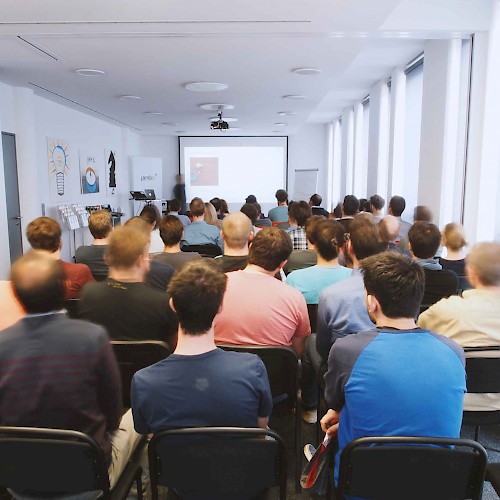
CoffeeTalks II / 2016
In April, it’s time again for the second round of the jambit CoffeeTalks 2016! All jambitees and interested jambitees-to-be are welcome to join the 60-minutes presentations by our experts about current IT issues and trends. Between and after the presentations, jambit invites everyone for discussions and networking over a good cup of jambit-coffee.
1:00 - 2:00 p.m.: Introduction to the Docker ecosystem
Dr. Torsten Ackemann / Senior Systems Architect / Platforms & Operations
Container technologies and especially Docker have steadily gained relevance in the last three years. Various tools and platforms around the core technology are attempting to establish themselves.
This lecture explains the fundamental functionality as well as the strengths and weaknesses of Docker. An overview of the most important technologies around Docker is provided and some of them are introduced in more detail, e.g. the Linux Distribution CoreOS and the PaaS solution Kubernetes.
2:30 - 3:30 p.m.: Unity – An introduction to cross-platform games development
Michael Hoffmann, M.Sc. / Software Architect / Automotive Bavaria
The talk gives an introduction to Unity, a cross-platform games engine. The development environment allows the development of computer games and other interactive 3D applications. Target platforms are PCs, games consoles, mobile devices and web browser.
In the talk, the most relevant facts and areas of application of the engine will be presented. Afterwards, the development environment will be further explained with an exemplary game.
4:00 - 5:00 p.m.: Decisions are made by gut feeling
Dipl.-Psych. Franz Haßlberger / Head of Media & More
„Leave your feelings aside when making important decisions.“ This frequently heard advice reflects our excessive overestimation of rationality. Those who rely on the gut feeling as guiding principle are often smiled at.
In his talk, the speaker examines the relevance of emotions and intuition as well as their inseparable connection to cognitive procedures in decision-making processes. Through the understanding of basic processes and psychological mechanisms in this context, own and others’ decisions can be better understood and questioned.

